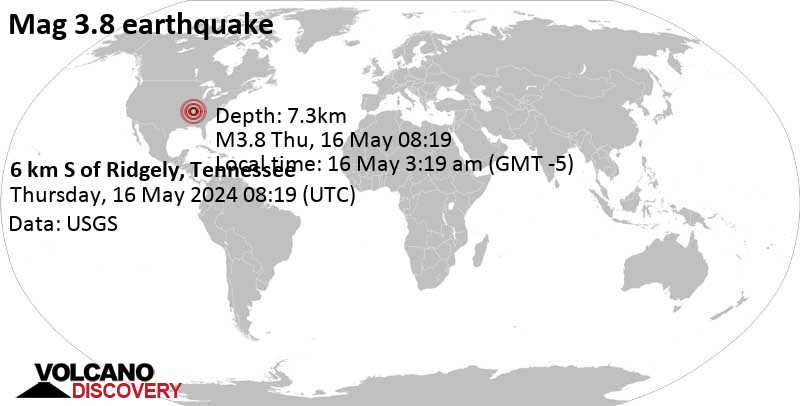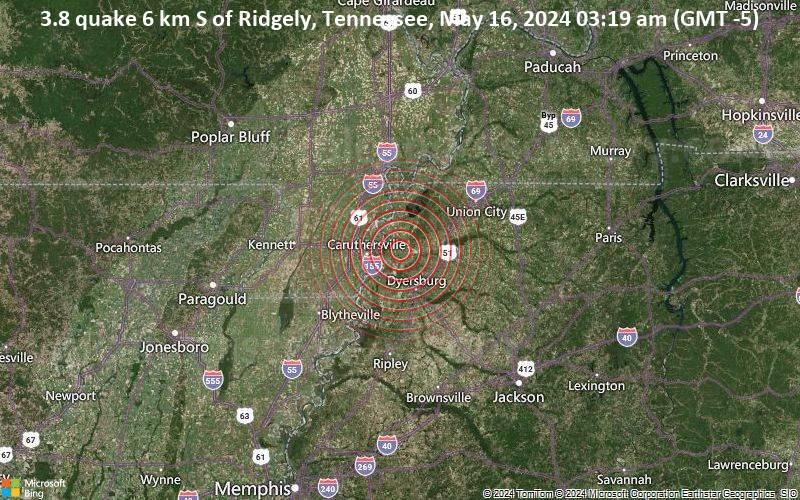Northwestern Tennessee experienced a sudden jolt early Thursday morning as a 3.8 magnitude earthquake struck the region, as reported by the U.S. Geological Survey (USGS). The quake, which occurred at approximately 3:19 a.m. local time, originated about 4 miles south of Ridgely, Tennessee. Situated approximately 13 miles northwest of Dyersburg and 150 miles west of Nashville, the seismic event sent ripples of tremors across the area, prompting residents to take notice.

Regional Impact of the Earthquake
The effects of the earthquake were felt across a wide swath of northwestern Tennessee and beyond. According to the USGS, reports of light to moderate shaking were received from areas as far south as Memphis and as far north as Carbondale, Illinois. Despite the relatively minor magnitude of the quake, its impact reverberated throughout the region, serving as a stark reminder of the unpredictable nature of seismic activity in the area.
Assessment and Response
The earthquake, which occurred at a depth of approximately 4.5 miles, did not result in any immediate reports of damage or injuries, according to officials. However, authorities remain vigilant as they assess the situation and monitor for any potential aftershocks. While the USGS notes that damage thresholds vary depending on various factors such as distance from the epicenter and soil composition, earthquakes of this magnitude typically do not cause significant structural damage. Nevertheless, the event underscores the importance of preparedness and awareness in earthquake-prone regions.
Understanding Earthquake Magnitude
It is crucial to understand that earthquake magnitude alone does not dictate the extent of damage that may occur. Factors such as soil type, building construction, and distance from the epicenter all play critical roles in determining the severity of the impact. While the USGS does not specify a single magnitude threshold above which damage is guaranteed to occur, it acknowledges that damage is less likely to occur until the magnitude surpasses a certain level, typically around 4 or 5 on the Richter scale. As such, communities must remain vigilant and implement appropriate safety measures to mitigate the risks associated with seismic events.

A Call for Preparedness
While the earthquake in northwestern Tennessee resulted in minimal disruption, it serves as a poignant reminder of the ongoing threat posed by seismic activity in the region. As communities continue to grapple with the aftermath of the event, there is a renewed emphasis on preparedness and resilience. By educating residents, implementing robust infrastructure standards, and fostering a culture of readiness, communities can better withstand the impact of future earthquakes and minimize the risk to lives and property. As the earth continues to shift beneath our feet, we must remain steadfast in our commitment to safeguarding our communities and ensuring their long-term safety and well-being.
